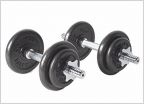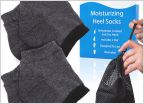-
Welcome to Tacoma World!
You are currently viewing as a guest! To get full-access, you need to register for a FREE account.
As a registered member, you’ll be able to:- Participate in all Tacoma discussion topics
- Communicate privately with other Tacoma owners from around the world
- Post your own photos in our Members Gallery
- Access all special features of the site
The Official Gym & Fitness Thread
Discussion in 'Health' started by TyT, Jan 31, 2011.
Page 183 of 3859
Page 183 of 3859


 Adjustable Dumbbells?
Adjustable Dumbbells? Running Tips
Running Tips Dry winter skin
Dry winter skin Health questions
Health questions EpiPen Storage While Camping - How To Keep At Correct Temperature?
EpiPen Storage While Camping - How To Keep At Correct Temperature?









































































